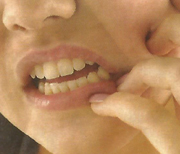
The leading cause of teeth grinding is stress. Bruxism can also con-tribute to gum recession and decay. It makes healthy teeth hypersensitive to cold. Damage caused to the teeth by bruxism is irreversible. Too much work, less sleep and too many worries lead to build up of frenzied ener-gy in the body that finds an outlet channel only when you sleep by letting itself out
 optional file name
optional file name 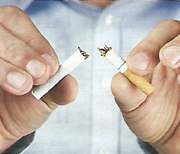
The use of tobacco products can lead to various health problems and, in some cases, fatal diseases. However, tobacco users don't realise the damage that smoking does to their mouth, gums and teeth. How smoking affects gums and teeth People who smoke are more likely to have gum disease. Smoking may change the type of bacteria in dental plaque, increasing the number of bacteria that are more harmful. It also reduces the blood flow in the gums and supporting tissues of teeth making them more likely to become inflamed.
 optional file name
optional file name 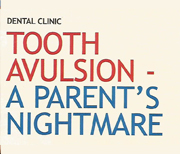
Injuries to the face and mouth due to sports or other accidents can cause teeth to fracture, loosen or even get knocked out of its socket (avulsion). These kinds of injuries are more common with children while they are running or playing, especially those between the ages of 8 and 11. However the good news is that teeth that are knocked out can often be saved if replanted straight back into the socket.
 optional file name
optional file name 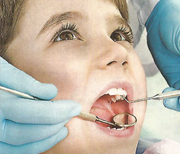
The pulp of a tooth is the inner, central core. It contains nerves, blood vessels, connective tissue and reparative cells. Cavities in baby teeth progress faster and affect the nerve sooner than in permanent teeth. When they become extremely deep, they can get too close to the pulp of the tooth or even into the pulp.
 optional file name
optional file name 
Eating a lot of sweets may satisfy your 'sweet tooth', but too much of it might damage your pearly whites. By following a few common practices, those who consume more sugar than average can keep their teeth healthy. Here are a few tips that can help prevent cavities for those who can't resist sweets: Moderation is the key. Monitor and limit the amount of sugary foods and candy you eat.
 optional file name
optional file name 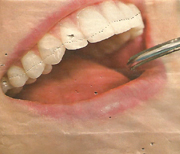
Predicting heart disease as cholesterol levels. A study authored by M Desvarieux, published in the Journal of the American Heart Association, tested 657 people without any known heart disease. The study found that people who had higher blood levels of certain disease-causing bacteria in the mouth were more likely to have deposits of fat and other substances (
 optional file name
optional file name 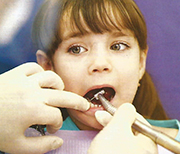
Why are the milk teeth called so? Milk teeth are called so due to their white colour which resembles the colour of milk. The milk teeth are whiter than the permanent teeth which replace them. The refractive index of milk teeth is similar to that of milk and hence they are called so.
At what age do the teeth start erupting? The milk teeth start appearing at 6 months of age. It is quite normal for the teeth to erupt 3-6 months later than the expected time. However delay beyond 6 months may be an indication that you should consult your dentist.
 optional file name
optional file name 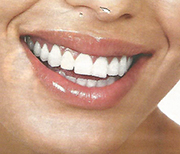
Millions of people suffer from gum disease every year, yet only a small percentage of them receives treatment. Gum disease has been linked to a variety of health complications, including heart disease, pancreatic cancer, diabetes and low birth-weight babies. Gum disease is widespread around the world and until recently the majority of the treatment options available included invasive surgery involving cutting the gum tissue down and suturing it back together or extracting the teeth and Dr Richa Raj recommending dentures or dental implants
 optional file name
optional file name